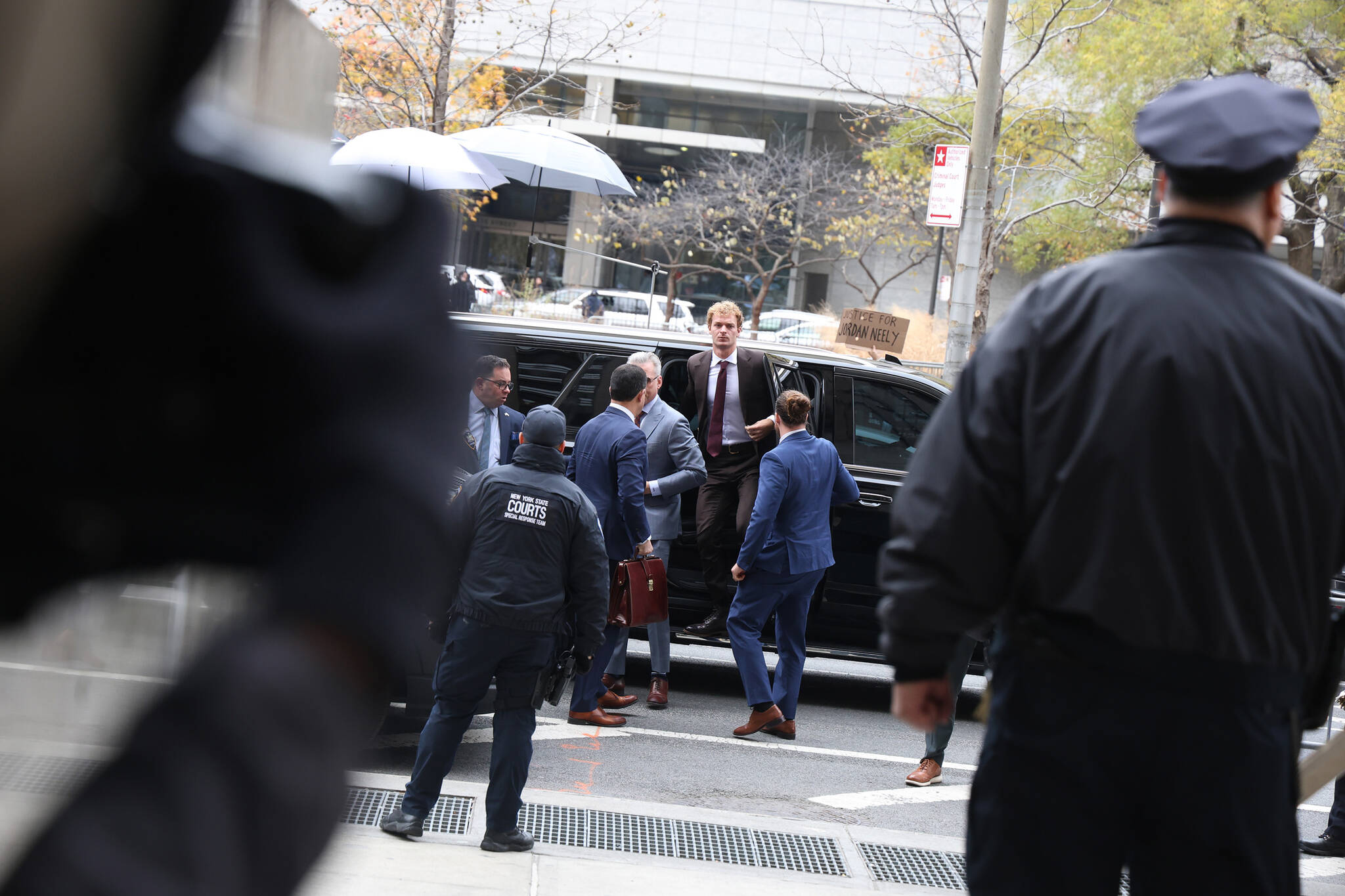On Monday, a New York City jury found Daniel Penny not guilty of negligent homicide in the death of 30-year-old Jordan Neely. The case gained national attention last year after video footage surfaced showing Penny held Neely in a chokehold for several minutes.
I never watched the video and didn’t follow the trial, so I don’t have an opinion on the verdict. But while reading about it, I was reminded of how many times Superior Court Judge Larry Woolford directed the jury I served on last month to avoid news stories and social media posts about the case before us.
Every time he finished reading those instructions, I wondered if he agreed with me that Donald Trump has done more than anyone else in America to erode the trust in our system of justice.
In Penny’s case, the day after the evidentiary phase of the trial ended, an e-book and audiobook about the trial was published by a journalist covering it. And while the jury was deliberating, an attorney representing Neely’s father filed a civil lawsuit alleging Penny’s negligence led to his son’s death.
Attempting to influence a jury is a crime. I don’t know if either action was intended to do that. But if any of it found its way to a single juror, it could have introduced evidence not presented at the trial and violated the defendant’s right to due process. The judge may have had to declare a mistrial before the verdict was reached.
You might recall that in the criminal case alleging Trump attempted to subvert the 2020 election, the U.S. District judge found it necessary to place him under a gag order. That was partly because in speeches and social media posts he had attacked potential witnesses who were “consequently threatened and harassed.” Trump appealed the order, but most of it was upheld, including the restrictions intended to prevent his intimidation of witnesses.
For the same reason, the judge presiding over the so-called hush money trial found it necessary to issue a gag order. Trump lost his appeal of that too. And when he violated it, the judge found him in contempt of court. Ultimately, the jury convicted him of all charges.
Unlike Penny, Trump hasn’t been acquitted by a jury in the 2020 election case. Or in the classified documents case in which he faced 40 felony charges, including lying to government officials who attempted to recover the documents and engaging in a conspiracy to obstruct justice.
But that didn’t stop him from telling Kristen Welker on “Meet the Press” last week that he won both cases.
As John Bolton, his former National Security Advisor, said several months ago, Trump “can’t tell the difference between what’s true and what’s false…So he makes up what he wants to say at any given time…And if it doesn’t comport with anybody else, he doesn’t really care and he’s had decades of getting away with it. So in his mind, the truth is whatever he wants it to be.”
Another example of that is when he told Welker that members of the House Select Committee that investigated the Jan. 6 insurrection “deleted and destroyed a whole year and a half worth of testimony.”
Having credible evidence to back up his allegations has simply never mattered to him. Neither does the due process of rights of his political enemies. “For what they did,” he said, “honestly, they should go to jail.”
Liz Cheney, a co-chair of that committee, staunchly refuted his allegation before referring to “the evidence and grand jury material assembled” by the prosecution team under Special Counsel Jack Smith. That includes the grand jury testimony of Vice President Mike Pence and members of his White House and campaign staffs.
Rest assured; Trump will continue to do everything in his power to prevent the public from seeing any of that evidence.
Learning the truth is the most important objective of our trial courts. But it must be determined based on the rules of evidence which have been developed over more than two centuries. It’s not a perfect system. And starting next month it will undergo a serious stress test when a pathological liar begins exercising his authority over the U.S. Department of Justice.
• Rich Moniak is a Juneau resident and retired civil engineer with more than 25 years of experience working in the public sector. Columns, My Turns and Letters to the Editor represent the view of the author, not the view of the Juneau Empire. Have something to say? Here’s how to submit a My Turn or letter.

